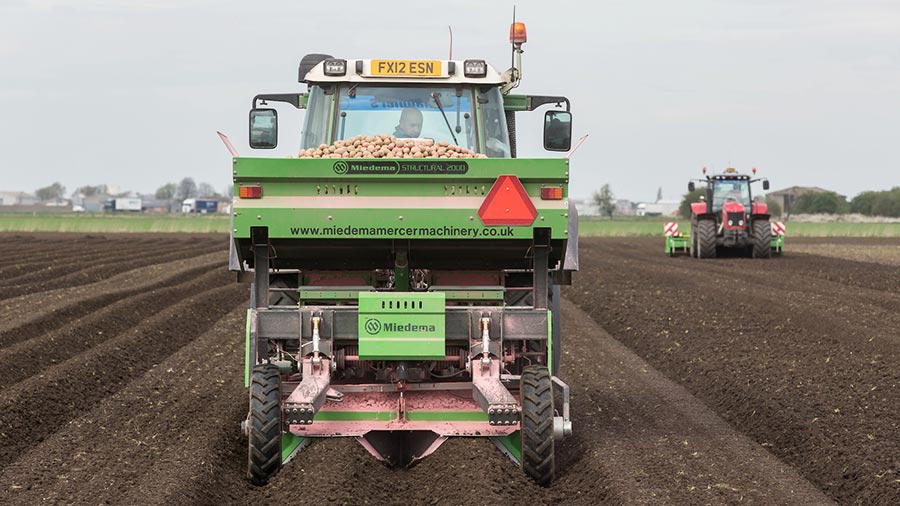Nematicide gets go-ahead for free-living nematode control in potatoes
 © Tim Scrivener
© Tim Scrivener A liquid nematicide containing fluopyram is now authorised for the suppression or free-living nematodes (FLNs), one of the most common nematode species that affects potato crops.
The new approval granted in April 2022, means that Velum Prime from Bayer Crop Science can be used for controlling the pest in ware, seed and salad crops.
Bayer says the nematicide can effectively reduce symptoms of the tobacco rattle virus which is transmitted by species of free-living nematodes.
These symptoms, known as potato spraing, cause both internal and external brown flecks and streaks on potato tubers, which reduce saleability.
See also: Beet farmers set to benefit with futures-based pricing in contract
A welcome approval
Antonia Walker, Bayer campaign manager for roots, says the news will be welcomed by potato growers due to the lack of alternative options with a short harvest interval.
For example, Nemathorin (fosthiazate) has a harvest interval of 119 days, which means it cannot be used for some early harvested crops.
“This authorisation, which comes in time for the main planting season and will be welcomed by those for which spraing is an issue, as it manages FLN populations at the same time as it is applied against the potato cyst nematode,” says Miss Walker .
However, the nature of tobacco rattle virus vector transmission means control is difficult, so the product must be used as part of a wider integrated pest management strategy.
“Velum Prime may reduce the symptoms of tobacco rattle virus, but will not eliminate them. Potato varieties can vary in their susceptibility to and expression of spraing symptoms. This should be taken into account when choosing to plant fields that are considered at risk from spraing.”
Seed and soil testing, field history, and soil type, location and rotation should all be carefully considered when selecting fields for planting, as should the use of chemical suppressants.
The nematicide is already effective against both species of potato cyst nematode and its authorisation mirrors the recent approval for use in carrots, where FLNs have been found to cause fanging and vector virus.

